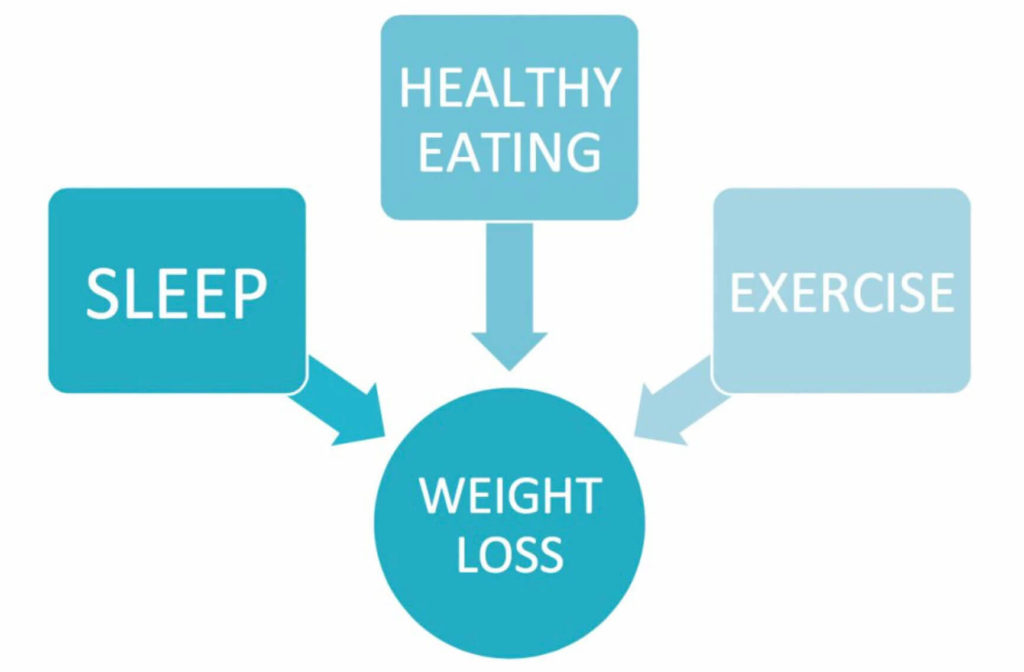Overview
Have you ever struggled with a weight loss goal? Wondered why nothing’s happening to your belly and numbers on the scale don’t change even though you’ve been rigorously following your diet and exercise plan? Would you believe me if I told you that you could start seeing results simply by sleeping?
In a 2004 study, participants who got less than eight hours of sleep a night had reduced leptin and elevated ghrelin, and higher BMI. A newer study suggests that increasing the amount of sleep adults get could lead to eating less, but the hormonal process differs between men and women. According to the study’s principal investigator, Marie-Pierre St-Onge, PhD, FAHA “Restricting sleep in healthy, normal weight participants has limited effects on metabolic risk factors and may affect food intake regulating hormones differently in men and women.” The team was surprised by how sleep duration doesn’t affect glucose, insulin and leptin levels, and by sex differences in the hunger-stimulating hormone ghrelin and the satiety hormone GLP-1.
How does sleep boost weight loss?

The study, conducted in 2012, tracked sleep duration, glucose dysregulation, and hormonal regulation of appetite in 27 normal weight, 30- to 45-year-old men and women. Fasting blood samples were obtained daily, and participants were studied under two sleep conditions: short (4 hours in bed) or habitual (9 hours in bed). Short sleep increased total ghrelin (the hunger hormone) levels in men but not women and reduced GLP-1 (the satiety hormone) levels in women but not in men. This sex difference has not been reported before.
If you’re not getting enough sleep you might also be less eager to work out. This is because fatigue could influence not just decisions like whether you eat a bar of chocolate, but also whether or not to break a sweat. Besides, when you’re tired, you’re more likely to simply give in to impulse of temptations. And guess what else can cause your diet to fail? Chronic stress. That’s because stress triggers the body to release cortisol, an appetite-stimulating stress hormone, which makes your body more likely to store fat. That’s the type of weight gain that increases your risk of serious health problems. What can help reduce stress? Yup, you got it right – the answer is sleep. When tired, you are less patient and more easily agitated, which can increase stress. A good night’s sleep helps you to tackle the day’s stress more easily.
Rest Up, Slim Down

The current research focuses on sleep deprivation leading to weight gain rather than an increase in sleep leading to weight loss. According to the National Sleep Foundation, the average adult gets only six hours and 51 minutes of sleep on weeknights. But, most people actually need seven to nine hours of sleep a night. Note that the quality of sleep also is important. If you’re not getting enough of REM and deep sleep, your mind and body will not recover, meaning that your mental functions and physical condition will suffer.
The results of the study point to the complexity of the relationship between sleep duration and energy balance regulation. The state of energy balance (whether someone is in a period of weight loss or weight gain) may be critical in the metabolic and hormonal responses to sleep restriction. According to the authors, this is the largest controlled clinical investigation of the effects of sleep reduction on hormonal regulation of food intake. The results suggest that the common likeliness to overeat due to sleep loss is derived from reduced feelings of fullness in women and increased appetite in men.

Bottom line: In order to achieve your weight loss goals and also ensure that you won’t gain weight, make sure you’re getting enough sleep.
Smiles,
Peppiina


